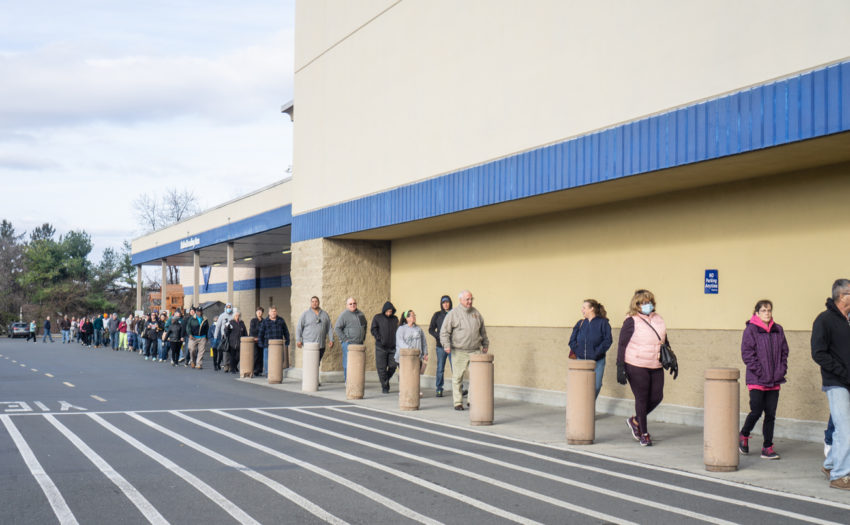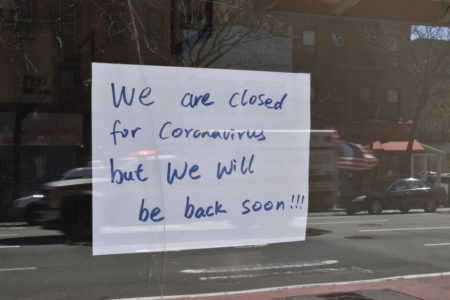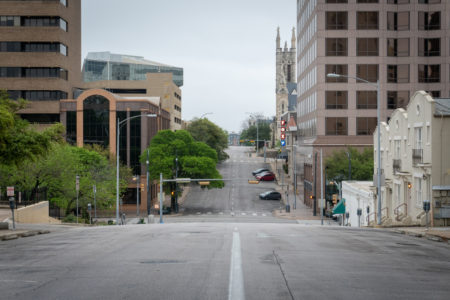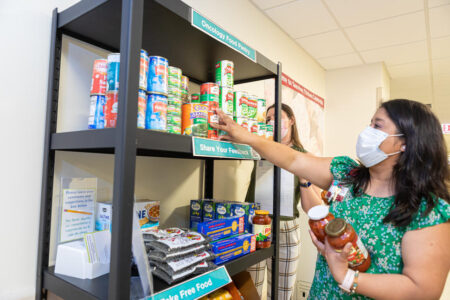
Share On Social!
As the U.S. Government continues to push back against the economic downturn and the spread of COVID-19, disadvantaged groups—such as Latinos—aren’t receiving an equitable share.
The recently passed $484 billion stimulus package will give millions of Americans and U.S. businesses with economic relief, in combination with past relief legislation.
However, the money isn’t reaching workers who need it the most, like Latino immigrants.
“The survey only confirms what we already know, that the Paycheck Protection Program money went to Wall Street billionaires and very little of it trickled to the mom-and-pop shops and small businesses of America,” LULAC National President Domingo García told NBC. “Lupita’s taqueria or Juana’s quinceañera shop didn’t get money while Ruth’s Chris (Steakhouse) and major hotel chains are getting millions of dollars.”
Latino Businesses’ Long-Term Lack of Support
Small businesses, such as family-owned restaurants or retail shops, are experiencing some of the most severe setbacks in this financial crisis.
Worse, people of color are experiencing exacerbated economic hardship.
“While the recent bipartisan bill signed into law was a step in the right direction in providing critical economic relief for families and businesses, it blatantly revealed our nation’s structural inequalities and disregard for communities of color,” Garcia told NBC. “Legislators failed to prioritize the most vulnerable populations the first time around, specifically the immigrant community.” 
Long before the outbreak of the current novel coronavirus, big banks and other financial lenders created redlined neighborhoods and denied Latino and African-American small business owners financing at higher rates compared to their white peers, according to the Stanford Institute for Economic Policy Research.
This caused these individuals to seek funding from Community Development Financial Institutions (CDFIs).
“If the system is a first-come-first-served system, it’s going to be very hard for the smallest to get in,” Lisa Mensah, the president and chief executive of the Opportunity Finance Network told Reuters.
Worsening Support for Latino Businesses
As these business owners have had to seek financing from smaller lenders, it now leaves them vulnerable to receive much-needed economic support.
Most of those funds were given to larger banks, first, who in-turn distributed those funds amongst their customers, according to NBC. Moreover, those larger institutions also were the ones who have routinely denied minority-run businesses for years.
So, as the money has quickly been distributed, some groups—Latino and other disadvantaged business owners especially—were left behind.
Eliuth Guzman, a Latin caterer in Chicago who was recently rejected a Paycheck Protection Program (PPP) loan, said this situation is dire for her business.
“We need this loan, we need this cash flow,” Guzman told Reuters. “Having this help from the government can hold me until I get back fully into the business.”
A recent survey from The League of United Latin American Citizens and the U.S. Hispanic Chamber of Commerce found that only 97 of a 500 Latino small-business owner sample group have received money from the Payment Protection Plan (PPP).
This has forced advocate groups across the country, such as the National Association for Latino Community Asset Builders (NALCAB), into action. 
“NALCAB further calls on the Small Business Administration to implement the law in a way that ensures equitable access to this emergency financial relief program,” the group said in a recent statement. “Across the board, small businesses have been incredibly hard hit by this rapidly evolving economic crisis. Underserved small businesses and the people they employ are even more vulnerable in this moment.
“For many who did not get access to the original PPP dollars, these additional funds could be the difference between resilience and economic ruin.”
As this crisis continues, advocates and citizens alike call on civic leaders to ensure further economic relief is distributed amongst the people who need it most.
“We are asking Congress to show some humanity and compassion by halting the separation of families, stopping deportations, and ending longer detentions than needed,” LULAC writes in a recent statement. “History will judge us by the leadership and actions taken during this time of crisis.”
To take further action, read our 19 ways to focus on health equity during COVID-19.
Explore More:
Understanding & Reducing PovertyBy The Numbers
23.7
percent
of Latino children are living in poverty



